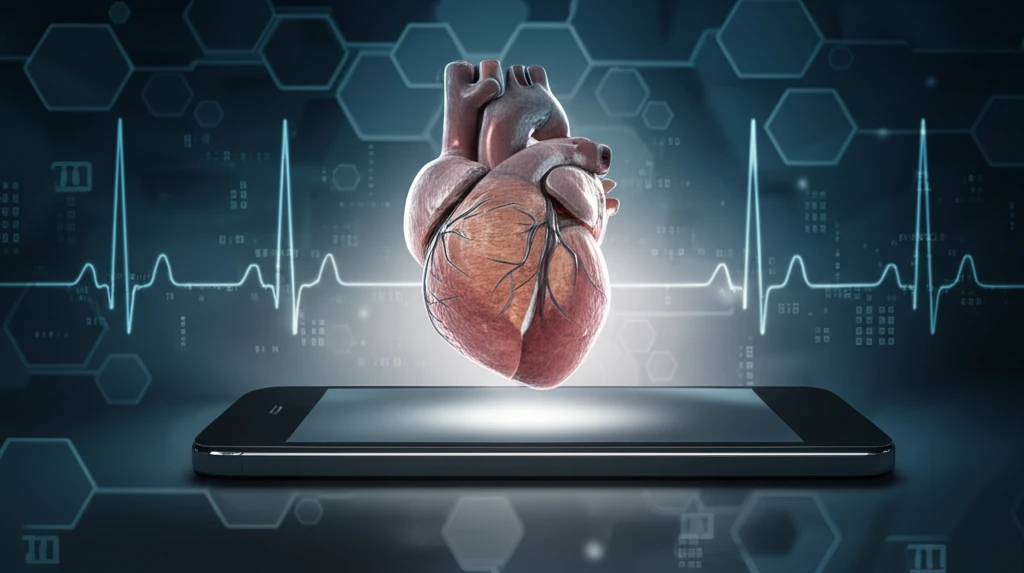
Smartwatch Heart Check: Is Your Smartphone Accurately Spotting AFib?
"Discover how smartphone tech is changing heart health, offering early AFib detection and peace of mind."
Atrial fibrillation (AFib), an irregular heart rhythm, is a significant health concern affecting millions. Early detection is key to preventing serious complications like stroke. Traditionally, diagnosing AFib required visits to a doctor and the use of specialized equipment. Now, technology is bringing heart health monitoring directly to your fingertips.
The rise of smartphones and wearable devices has opened new avenues for personal health monitoring. These devices, equipped with sophisticated sensors and algorithms, claim to detect AFib with increasing accuracy. One such device is the Kardia Mobile Cardiac Monitor (KMCM), a smartphone-compatible tool designed to detect AFib through a simple handheld sensor. But how reliable are these technologies, and can we truly depend on them for accurate heart rhythm assessments?
Recent research, including the "iREAD Study," has delved into the accuracy of these smartphone-based AFib detection methods. By comparing KMCM readings with traditional 12-lead electrocardiograms (ECGs), researchers are working to validate the effectiveness of these technologies and understand their potential role in modern healthcare.
How Accurate is Smartphone AFib Detection?

The iREAD Study, conducted at the Cleveland Clinic, aimed to evaluate the accuracy of the Kardia Mobile system in detecting AFib. Researchers enrolled 52 patients with known AFib and compared KMCM readings with simultaneously obtained 12-lead ECGs, the gold standard for heart rhythm diagnosis. The results revealed some impressive findings. When the KMCM's automated algorithm provided a result, it demonstrated high sensitivity (96.6%) and specificity (94.1%) in detecting AFib compared to physician-interpreted ECGs.
- High Sensitivity: The KMCM system accurately identified AFib in most cases when the automated interpretation was available.
- Enhanced Accuracy with Physician Review: Direct review of KMCM recordings by a doctor significantly improved diagnostic yield, especially for unclassified recordings.
- User-Friendly Technology: The majority of patients found the KMCM easy to use, reducing anxiety related to AFib diagnosis.
- Potential for Continuous Monitoring: The KMCM offers a non-invasive way to monitor heart rhythm over an extended period, filling gaps in traditional monitoring methods.
Empowering Patients, Enhancing Healthcare
Smartphone-based AFib detection is a promising advancement in healthcare. Devices like the Kardia Mobile offer a convenient and accessible way to monitor heart rhythm, empowering individuals to take a more active role in their health. While these technologies are not a replacement for traditional medical evaluations, they can provide valuable insights and support informed decision-making. As research continues and technology evolves, we can expect even more accurate and user-friendly tools to help manage and prevent AFib.
